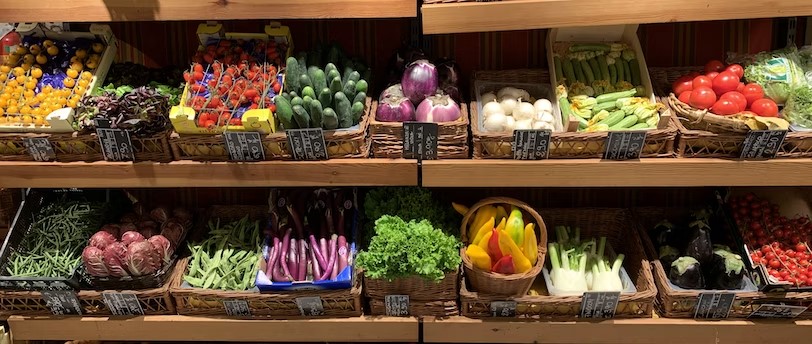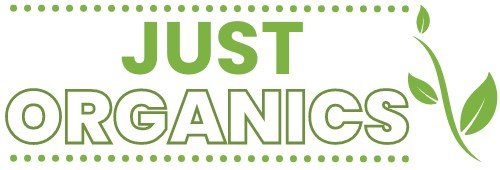Are you concerned about the amount of pesticides in your produce? It’s time to start choosing organic produce wisely. It’s important to understand which fruits and vegetables are more likely to have higher pesticide levels. That’s where the Environmental Working Group’s annual lists, known as the Dirty Dozen and Clean Fifteen, come in. These lists provide valuable information on which produce items are worth buying organic and which ones are safer to consume conventionally grown.
The Dirty Dozen consists of twelve fruits and vegetables that typically have the highest pesticide residues. These include popular favourites such as strawberries, spinach, kale, and apples. On the other hand, the Clean Fifteen identifies fifteen produce items with low pesticide levels, making them a better option if you’re unable to buy everything organic. Examples of these low-pesticide options include avocados, sweet corn, pineapples, and onions. By understanding these lists, you can make informed choices when it comes to shopping for organic produce and reduce your exposure to harmful pesticides.
Table of Contents

Understanding Pesticide Levels in Produce
You’ll be surprised by the pesticide levels lurking in your produce and how understanding them can empower you to make smarter choices for your health. Pesticides are chemicals used to kill or control pests on crops, but they can also pose health risks when consumed in high amounts. Studies have linked pesticide exposure to various health issues, including cancer, reproductive problems, and neurological disorders. By being aware of the pesticide levels in your produce, you can take steps to reduce your exposure and protect yourself from these potential risks.
One way to minimize pesticide exposure is by choosing organic produce. Organic farming practices prohibit the use of synthetic pesticides, relying instead on natural methods like crop rotation and biological pest control. This not only benefits consumers by reducing their intake of harmful chemicals but also has positive impacts on the environment. Organic farming promotes soil health and biodiversity while minimizing water pollution and carbon emissions.
Understanding the pesticide levels in your produce is essential for making informed decisions about what you eat. The Environmental Working Group (EWG) provides an annual list called “the Dirty Dozen” that ranks fruits and vegetables based on their pesticide contamination levels. By consulting this list, you can identify which items tend to have higher concentrations of pesticides and prioritize buying those organic if possible. On the other hand, the EWG also publishes a list called “the Clean Fifteen,” which highlights conventional produce with lower residue levels, making it more suitable for non-organic consumption.
Being aware of pesticide levels in your produce allows you to make informed choices that promote both your health and the environment’s well-being. Understanding the potential health risks associated with pesticide exposure highlights the importance of reducing our intake through wise food choices. Opting for organic farming practices not only minimizes our exposure to harmful chemicals but also supports sustainable agricultural methods that benefit ecosystems as a whole.
The Environmental Working Group’s Annual Lists
Make sure to check out the Environmental Working Group’s annual lists for a savvy guide on which fruits and vegetables are best for your health and the environment. These lists, known as the Dirty Dozen and Clean Fifteen, provide valuable information about pesticide levels in produce. By consulting these lists, you can make informed choices when it comes to buying organic produce.
The Dirty Dozen list includes fruits and vegetables that have been found to have the highest levels of pesticide residues. These include popular items such as strawberries, spinach, and apples. Pesticides are used in conventional farming to protect crops from pests and diseases, but they can also pose risks to human health. By choosing organic options for the items on this list, you can reduce your exposure to harmful pesticides.
On the other hand, the Clean Fifteen list consists of fruits and vegetables with lower levels of pesticide residues. This includes items like avocados, sweet corn, and pineapples. While these foods may still contain some traces of pesticides, they generally have lower levels compared to those on the Dirty Dozen list. If budget constraints or availability limit your ability to buy organic produce for all your needs, referring to this list can help you prioritize which items are less important to buy organic.
By using the Environmental Working Group’s annual lists as a guide, you can make more informed decisions about food safety and choose organic produce wisely. It is important to note that even though organic farming practices minimize pesticide use, they do not guarantee the complete absence of residues on produce. However, by opting for organically grown fruits and vegetables whenever possible, you can reduce your exposure to potentially harmful chemicals while supporting sustainable agricultural practices that benefit both our health and the environment.
The Dirty Dozen: High-Pesticide Fruits and Vegetables
When it comes to your health and the environment, being mindful of the fruits and vegetables with higher pesticide levels is crucial. The Environmental Working Group’s annual lists provide valuable information on which produce items have the highest pesticide residues. These lists are known as the Dirty Dozen and Clean Fifteen. The Dirty Dozen consists of twelve fruits and vegetables that have been found to contain high levels of pesticides even after washing. By being aware of these high pesticide food risks, you can make informed choices about what produce to buy organic.
The Dirty Dozen list includes popular fruits like strawberries, apples, grapes, and peaches, as well as vegetables like spinach, celery, tomatoes, and bell peppers. These foods tend to absorb more pesticides due to their thin skins or their propensity for absorbing water from the soil. Consuming high amounts of pesticides has been linked to various health issues including hormone disruption, cancer risk, developmental problems in children, and damage to the nervous system.
Choosing organic options for the dirty dozen can help reduce your exposure to these harmful pesticides. Organic farming practices prohibit the use of synthetic pesticides and instead rely on natural methods such as crop rotation, composting, and biological pest control. Studies have shown that organic produce has lower pesticide residues compared to conventionally grown counterparts. Additionally, supporting organic farming has environmental benefits such as preserving biodiversity in soil ecosystems and reducing water pollution from runoff.
Knowing which fruits and vegetables are part of the Dirty Dozen list can help you prioritize buying organic when it comes to these specific items. By doing so, you can reduce your exposure to high pesticide food risks that may have negative impacts on your health. Supporting organic farming practices not only benefits your own well-being but also contributes towards a healthier environment for everyone.
The Clean Fifteen: Low-Pesticide Produce Options
Looking for healthier options? Check out the list of low-pesticide produce, known as the Clean Fifteen, to make informed choices about what fruits and vegetables to buy. The Clean Fifteen is a selection of produce that has been found to have minimal pesticide residues when grown conventionally. This means that even if you can’t afford or find organic options, you can still reduce your exposure to harmful chemicals by choosing fruits and vegetables from this list.
One reason why these fruits and vegetables have lower levels of pesticides is due to the farming methods used. Low pesticide farming methods, such as integrated pest management and crop rotation, are employed to minimize the use of chemicals. These practices aim to control pests naturally by introducing beneficial insects or using traps instead of relying solely on pesticides. By opting for produce from the Clean Fifteen list, you not only support farmers who prioritize sustainable farming practices but also reduce your own intake of potentially harmful substances.
In addition to being lower in pesticides, the Clean Fifteen also offers nutritional benefits. Many studies have shown that organic produce tends to have higher levels of certain nutrients compared to conventionally grown counterparts. For example, some research suggests that organically grown fruits and vegetables may contain more vitamin C, iron, magnesium, and antioxidants. So by choosing items like avocados, sweet corn, pineapples, onions, and papayas from the Clean Fifteen list, you’re not only reducing your pesticide exposure but also getting a boost in essential vitamins and minerals.
Making Informed Choices for Organic Shopping
To ensure you’re selecting the healthiest options while grocery shopping, consider educating yourself on the benefits and advantages of organic produce. Organic certification guarantees that the produce has been grown without the use of synthetic pesticides, fertilizers, or genetically modified organisms (GMOs). By choosing organic, you can reduce your exposure to harmful chemicals and support sustainable farming practices. Additionally, studies have shown that organic fruits and vegetables may have higher levels of certain nutrients compared to conventionally grown ones.
One of the main health benefits of consuming organic produce is a reduced risk of pesticide residue exposure. Pesticides are used in conventional farming to control pests and weeds, but they can leave behind residues on crops. These residues have been linked to various health issues such as hormone disruption, neurotoxicity, and even cancer. Choosing organic ensures that you’re minimizing your intake of these potentially harmful substances.
Furthermore, organic farming methods prioritize soil health and biodiversity. Organic farmers rely on natural methods like crop rotation, composting, and biological pest control to maintain healthy soil ecosystems. This leads to increased nutrient content in the produce as well as a more sustainable environment for future generations. By supporting organic agriculture, you are not only benefiting your own health but also contributing to a healthier planet.
Educating yourself about organic certification and understanding the health benefits associated with it can help guide your choices when shopping for produce. Going organic reduces exposure to pesticides and supports sustainable farming practices that prioritize soil health and biodiversity. So next time you’re at the grocery store, consider reaching for those certified organic fruits and vegetables – both for your own well-being and the well-being of our planet.
Conclusion
In conclusion, when it comes to choosing organic produce wisely, understanding pesticide levels is crucial. The Environmental Working Group’s annual lists, known as the Dirty Dozen and Clean Fifteen, provide valuable information on which fruits and vegetables have high or low pesticide residues. By referring to these lists, you can make informed choices about which produce to prioritize for organic shopping.
The Dirty Dozen consists of high-pesticide fruits and vegetables that are best purchased in their organic form. These include popular items like strawberries, spinach, and apples. On the other hand, the Clean Fifteen offers a selection of low-pesticide produce options such as avocados, sweet corn, and pineapples. These foods may be less important to buy organic due to their lower pesticide levels.
By using these lists as a guide, you can reduce your exposure to harmful pesticides while still enjoying a variety of fresh fruits and vegetables. It’s important to note that consuming conventionally grown produce is still better than not eating enough fruits and veggies at all. However, if you have the means and opportunity to choose organic options from the Dirty Dozen list especially, it can help minimize your pesticide intake for a healthier lifestyle overall. Stay informed and make conscious choices for yourself and your family when it comes to buying organic produce.

